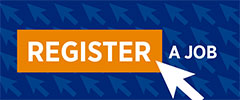Jobs & employment blogs
Your career is a journey with many opportunities to explore. As a trusted partner, we guide thousands of professionals and employers through every step of their way. From industry specific insights, interview preparation, to team management and in-demand jobs – we’ve got you covered.
As the world of work evolves, we are here to support you through both the current challenges and your longer-term planning. Discover all our latest insights.
As your lifelong career partner, we are here to help you navigate an evolving world of work – and move forward in your career. Discover all our latest tips, advice and guides.





